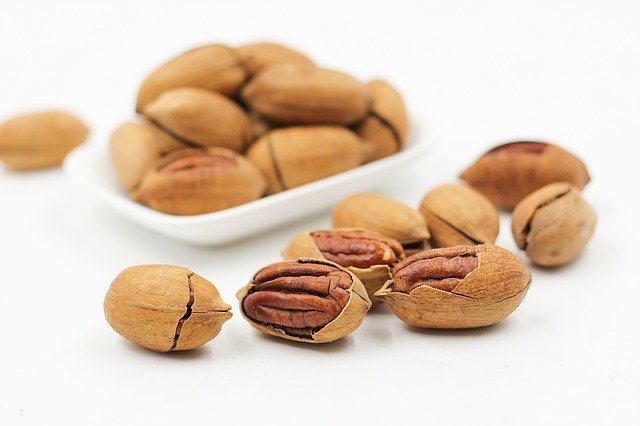
It is known that nuts are a good source of protein. In addition, most nuts contain at least some heart-healthy substances, such as unsaturated fats, Omega-3 fatty acids, fiber, and vitamin E.
Previous research has shown that eating nuts may help reduce risk of heart disease and type 2 diabetes. Now scientists find that eating nuts can also reduce inflammation, the body’s response to injury.
The finding is published in American Journal of Clinical Nutrition. Researchers from Brigham and Women’s Hospital in Boston, Harvard T.H. Chan School of Public Health, Harvard Medical School, and Dana-Farber Cancer Institute conducted the study.
They tested habitual nut eating in relation to inflammation in US men and women. A total of 5,013 people’s data were selected from the Nurses’ Health Study and Health Professionals Follow-Up Study.
All participants were free of diabetes. Their nut eating habits (i.e. eating peanut and other nuts) was estimated with food-frequency questionnaires. Their plasma biomarkers were collected too.
The result showed that a greater eating of nuts was related to lower amount of inflammatory biomarkers, after the influence of medical, dietary, and lifestyle factors was controlled.
In addition, people who ate nuts >= 5 times per week had significantly lower plasma biomarkers than those who never eat nuts. The difference remained significant after the BMI was controlled.
Finally, substituting 3 servings of nuts per week for 3 servings of red meat, processed meat, eggs, or refined grains per week was associated with lower inflammation biomarkers.
Researchers suggest that frequent nut eating was associated with a healthy profile of inflammatory biomarkers. This may explain the benefits of nuts on heart and metabolic diseases.
In the future, researchers will test how diet influences inflammation and the risk of disease.
Citation: Yu Z, et al. (2016). Associations between nut consumption and inflammatory biomarkers. American Journal of Clinical Nutrition, 104: 722-728. doi: 10.3945/ajcn.116.134205.
Figure legend: This Knowridge.com image is for illustrative purposes only.



